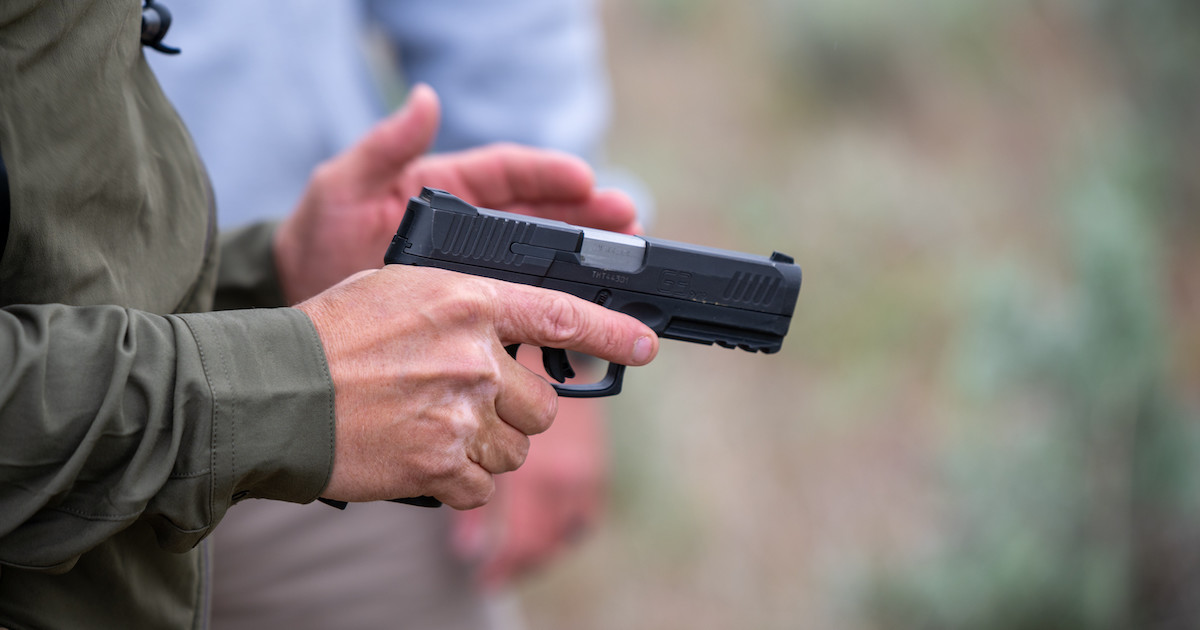In a world where personal security and self-defense are increasingly prioritized, the selection of a compact pistol for concealment is a topic of considerable interest and importance. The decision to carry a concealed weapon is a serious commitment, and choosing the right compact pistol is crucial. This article aims to guide you through the key factors to consider when selecting the best compact pistol for concealment.
Understanding Compact Pistols
Compact pistols are smaller versions of full-size handguns and are designed to be easily concealable while still being effective. They often have shorter barrels and grips, and a reduced magazine capacity. Despite their smaller size, they should not be underestimated in terms of power and functionality. An example of such a pistol is the M&P Shield 9mm, known for its balance of size and firepower.
1. Legal Considerations
Before delving into the specifics of pistol selection, it is essential to understand and comply with local and federal laws regarding concealed carry. Laws vary by state and country, and it is imperative to be informed about permits, training requirements, and any restrictions.
2. Caliber Choice
One of the most critical considerations in choosing a compact pistol is the caliber. Common calibers for compact pistols include .380 ACP, 9mm, .40 S&W, and .45 ACP. The choice of caliber often involves a trade-off between stopping power and recoil management. While larger calibers like the .45 ACP offer more stopping power, they also have more recoil, which can be challenging for some shooters to manage. On the other hand, calibers like 9mm provide a good balance between power and control.
3. Size and Concealability
The primary purpose of a compact pistol is concealment. The size of the pistol plays a significant role in how easily it can be concealed. Consider factors such as the length of the barrel, the width of the slide, and the height of the grip. A slimmer and shorter pistol is often easier to conceal but may hold fewer rounds.
4. Ergonomics and Comfort
The comfort of handling the pistol is crucial. Ergonomics plays a significant role in this. The pistol should fit comfortably in your hand, and you should be able to reach all the controls easily. The grip texture, shape, and the angle of the grip all contribute to how the pistol feels when held and fired.
5. Capacity
The capacity of a pistol, or the number of rounds it can hold, is another important consideration. A higher capacity might offer more peace of mind, but it often comes at the cost of increased size and weight. Decide on a balance that works for you between capacity and concealability.
6. Reliability
Reliability is paramount. A compact pistol is a tool for self-defense, and it needs to function flawlessly when needed. Research the reliability of different models and brands, and pay attention to user reviews and professional testing.
7. Sights and Trigger
The quality of the sights and the trigger can greatly affect your shooting accuracy. Many compact pistols come with standard iron sights, but some offer night sights or the ability to mount red dot sights. The trigger pull should be smooth and consistent. Test different pistols to find one with a trigger feel that you are comfortable with.
8. Accessories and Customization
Consider the availability of accessories and customization options. Holsters, extended magazines, grips, and laser sights can enhance the performance and convenience of your compact pistol. Ensure that the model you choose has a good range of compatible accessories.
9. Price and Budget
Price is always a consideration. Compact pistols range in price from relatively affordable to quite expensive. Determine your budget beforehand, but remember that quality and reliability should not be compromised for the sake of cost.
10. Training and Practice
Finally, no matter what compact pistol you choose, training and practice are essential. Regular practice at a shooting range and professional training can significantly improve your proficiency and confidence in handling your pistol safely and effectively.
Conclusion:
Selecting the right compact pistol for concealment is a multifaceted decision that requires careful consideration of legal aspects, caliber, size, ergonomics, capacity, reliability, sights and trigger, accessories, budget, and the need for ongoing training. Remember that the best compact pistol is the one that fits your specific needs, preferences, and lifestyle. It is a personal choice, and what works for one person may not be the best option for another. Take your time, do thorough research, and if possible, test different models before making your decision. With the right compact pistol, you can ensure your personal security with confidence and responsibility.

